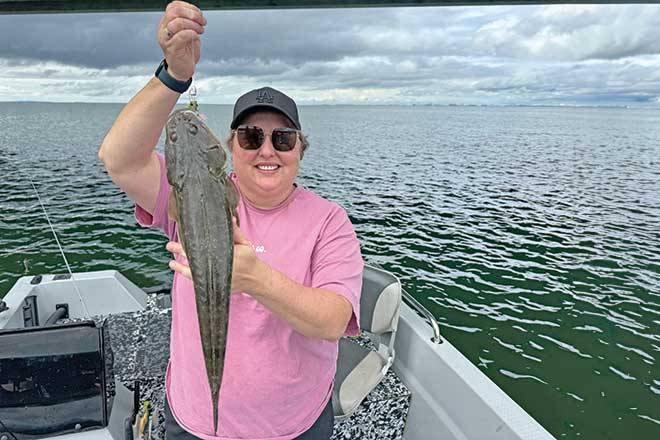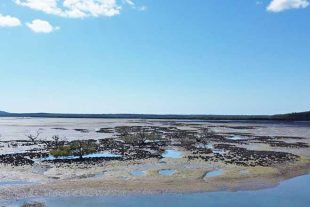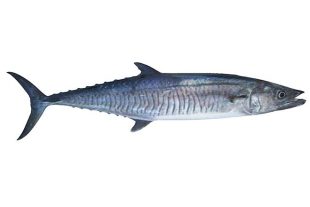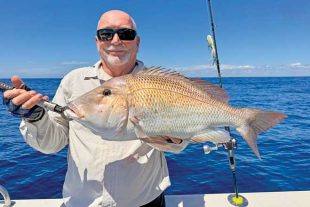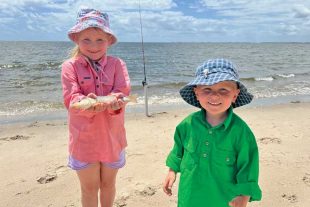This year has been one of the wettest we’ve had for a while.
Constant downpours have kept the rivers browner than we would like.
The fish don’t seem to know whether they’re coming or going.
As soon as the water looks to be clearing up and the fish start pushing back in, it rains again and we are back to square one.
Mud crabs have been plentiful and the quality is generally very good in May.
There is always someone out there who wants your crabs or pots more than you, so expect to have your pots checked or stolen at some point.
I do my best to make it hard for the average person to find my pots, but it’s impossible to hide them from everyone when you’re following the rules.
We have invested in a trail camera to catch the oxygen thieves that keep checking our pots.
I’m looking forward to finding out what sort of people think it’s OK to mess with someone else’s gear.
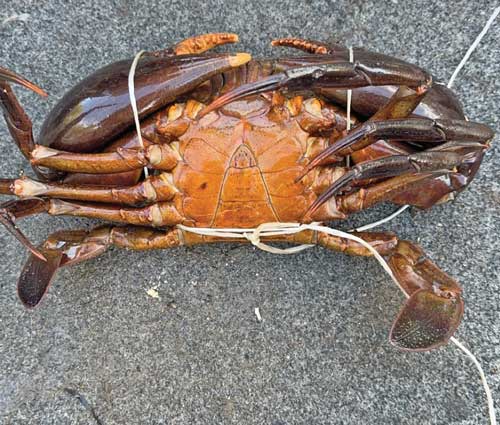
Mud crabs really aren’t that hard to catch at this time of year, so I don’t understand why everyone can’t just catch their own in their own pots.
Fresh bait is always best.
I prefer to mix it up with a combination of fish and chicken frames.
There are some excellent quality pots on the market currently.
The best I have found are the pop-up pots from Crab’n Gear.
These pots don’t need to have uprights put in and they work a treat.
They’re quick to set up, have a good bait bag and catch more crabs than any other pot I’ve used.
The crabs will continue to move about over the next two to three months, then they tend to slow down a little.
I put the pots away towards the end of August and won’t get them back out until late November or early December.
The months of spring are hard work when chasing mud crabs.
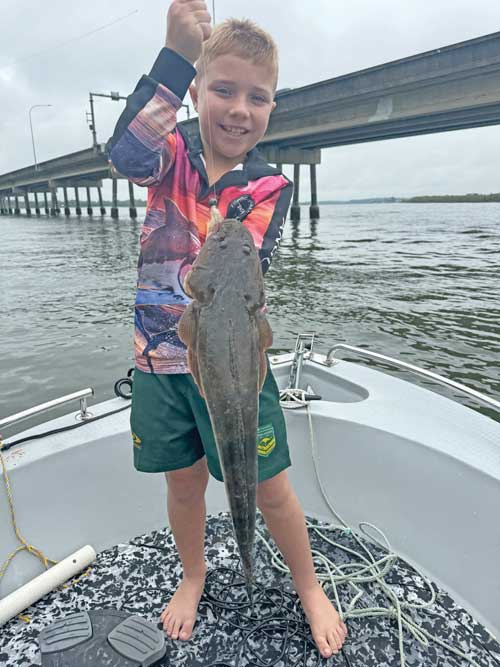
Even though there are still a few getting about then, fishing during those months is excellent, so it takes preference for me.
March and April are generally the best months of the year to chase a few prawns around Brisbane, however so far this year, it has been very difficult to find them consistently.
I don’t chase a lot of prawns these days, though I do look for prawn schools when I’m fishing.
I like to have a cast net in the boat at this time of year, just in case I find some good numbers.
Just as we humans do, fish love eating prawns too.
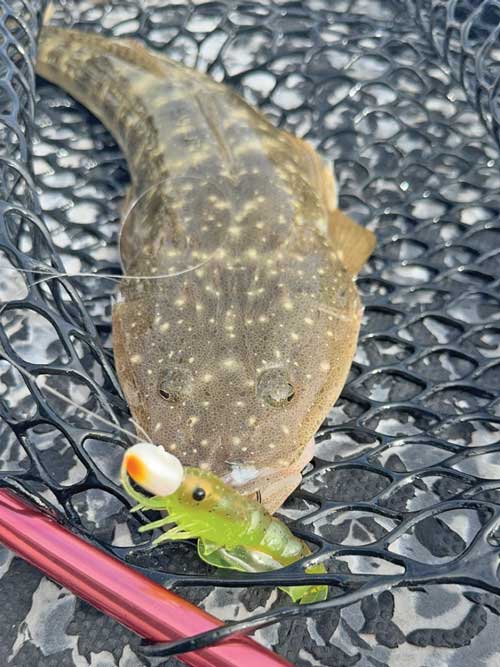
The saying ‘find the bait, find the fish’ never gets old.
When I’m fishing, I’m always looking at my sounder for bait schools down deep and also for any surface activity, whether it be mullet rippling or prawns flicking.
Sometimes it can be the smallest indication that lets you know there’s something under the surface.
Not all fish will push bait to the surface when they’re feeding.
Flathead can be gorging themselves under the surface with little or no indication that the bait is even there.
I was fishing an area recently when I saw a prawn flicking across the surface being chased by a nice little giant trevally.

My son Luke and I had a few casts at it for no result, so I let my plastic hit the bottom and was instantly rewarded with a nice flathead.
During the next hour, we landed over 30 flathead in the same spot.
The next day, I took my wife Ash to see if the flatties were still there, and we had a very good session.
We landed 65 lizards in two hours, with most being legal.
Though there weren’t many big fish among them, with the biggest only measuring 56cm.
It’s shaping up to be a great winter for flathead and a variety of other species.
The bait has also been attracting numerous species such as tailor, trevally and tarpon.
Tarpon aren’t that common around Brisbane compared to areas further north and south.
I assume it’s due to the water quality and the shallower entrances into rivers such as the Pine and Caboolture.
The southern end of Pumicestone Passage has a lot of them in the deeper water near the bridge, especially at night.
That’s it from me this month.
Next month I’ll go into some detail on what lures I use when chasing flatties in Brisbane’s waterways.
 Bush ‘n Beach Fishing Magazine Location reports & tips for fishing, boating, camping, kayaking, 4WDing in Queensland and Northern NSW
Bush ‘n Beach Fishing Magazine Location reports & tips for fishing, boating, camping, kayaking, 4WDing in Queensland and Northern NSW

